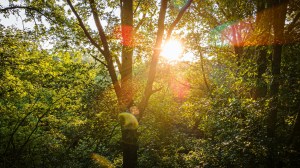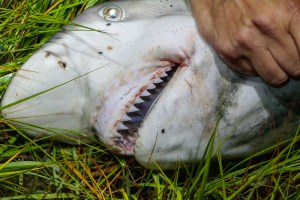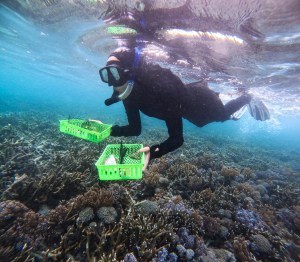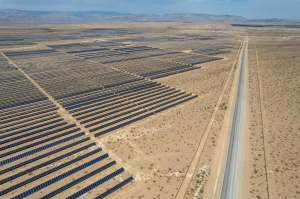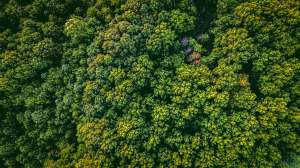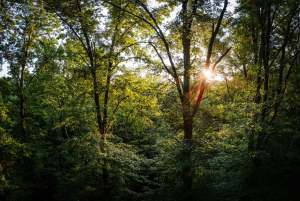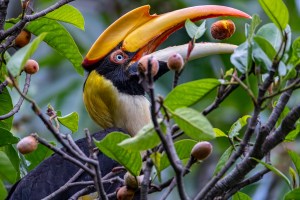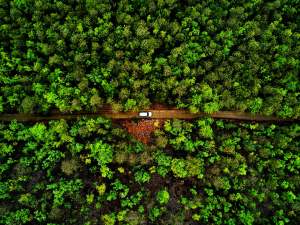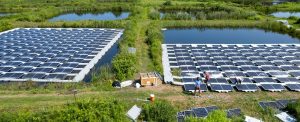Discover stories in Climate Change
For Climate Adaptation, Forests Offer More Than Carbon Storage
New research finds that forests play a far greater role in protecting people from climate change than previously recognized.
Catching Sharks for Science
On Long Beach Island, volunteer anglers help researchers uncover the hidden journeys of sharks in threatened salt marsh ecosystems.
Stress-Testing Corals to Find Raja Ampat’s Most Resilient Reefs
Low-tech field science and community partnerships combine to help identify the most climate-resilient reefs in Raja Ampat.
Grazing Lands as Climate Solutions: Key Practices for Carbon and Biodiversity
Study finds wetland restoration, pasture planting, and adjusted grazing can boost soil carbon and cut emissions—but more research is needed for lasting impact.
Risk, Resilience, and the Power of Community Preferences
Climate adaptation starts locally. See how TNC partners with communities to reduce risk and scale nature-based solutions.
Solar’s Hidden Footprint: Why Accurate Land Data Matters for Conservation
New research reveals solar datasets underestimate land use by up to 34%, masking habitat loss in natural areas.
Forest Carbon Projects May Help More Than We Thought—New Study Finds Leakage Often Overestimated
New findings challenge current carbon market accounting practices and advocate for more nuanced, carbon-specific leakage estimates to ensure integrity and unlock greater investment in Climate Smart Forestry as a natural climate solution.
Maximizing Climate Returns: Albedo Accounting for Smarter Carbon Investments
New research shows how the albedo effect—Earth’s reflectivity—influences how well forest restoration projects can help cool the Earth.
Climate Mitigation Depends on Seed-Dispersing Wildlife
A new study finds that the loss of seed-dispersing species in tropical forests more than halves the potential for areas of natural regrowth to sequester carbon.
Young Forests Are an Overlooked Climate Solution
New research by TNC scientists provides the first detailed picture of the carbon removal value of naturally regrowing forests
Sun on the Water: How to Plan for a Renewable Energy Future That Floats
The expansion of floating photovoltaics could provide renewable energy while also sparing land. But there are still many unknowns.
Minimizing Tradeoffs Between Crop Yields and Climate Benefits
Research pinpoints where regenerative agriculture practices can have the most benefits for climate change mitigation and crop production.
